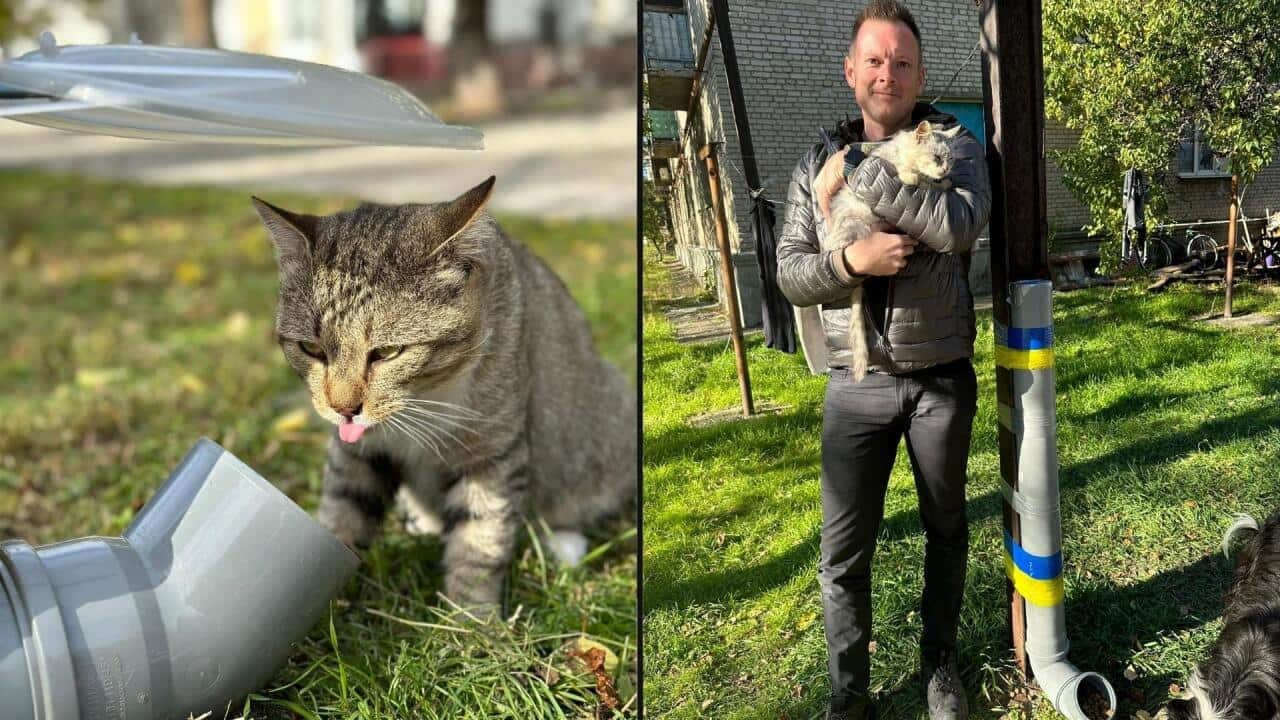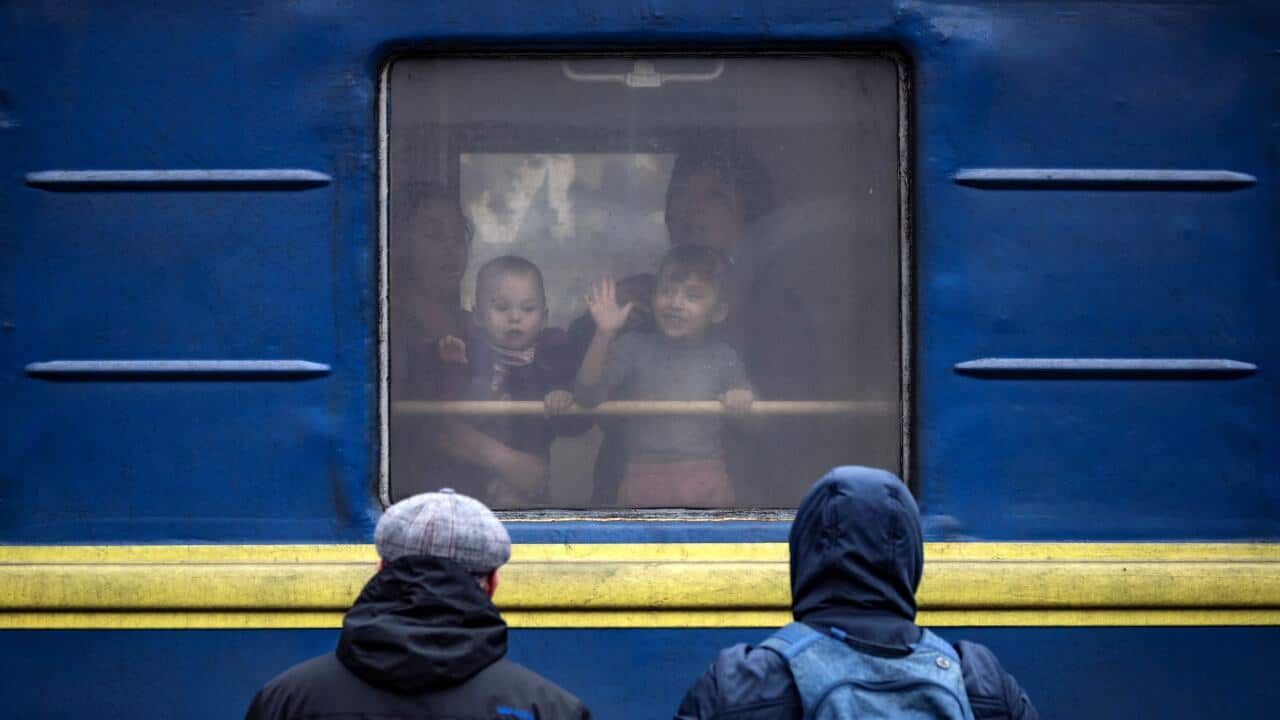Key Points
- Since Russia's invasion began, thousands of Ukrainian animals have become displaced and have limited access to food
- Now, charity organisations are working to support them and have set up feeding stations throughout cities
Earlier this week, Nate Mook woke up to witness something extraordinary.
Almost half a dozen hungry dogs, all lined up and politely waiting their turn at the feeding station he'd help set up a day earlier in the Ukrainian city of Kramatorsk.
"I was blown away. I had never seen anything like it," Mr Mook told SBS News.
Mr Mook has spent most of the last eight months in Ukraine supporting refugees and humanitarian projects, and is one of the organisers on the ground setting up feeding stations for animals throughout Ukrainian cities.
The dogs that had lined up for food in Kramatorsk had been left behind as their Ukrainian owners were forced to flee Russian attacks.
In April 2022, thousands of people left the city in eastern Ukraine following a missile strike at a train station which killed more than 50 civilians.
Many families were unable to take their pets with them, which has led to animals in need roaming the streets.
With their and families either fleeing the area or being killed, dogs are just a small handful of the thousands of domestic animals throughout Ukraine who have been left with no shelter, food, or support.
"These are animals that used to live in homes and their families have left and they don't necessarily have anyone taking care of them right now," Mr Mooks said.
"They kind of group together in packs, and that's why they're all together and they're very, very organised. They're very smart, intelligent animals."
'The dogs are afraid of humans right now'
Mr Mook, an entrepreneur and filmmaker, was recently the CEO of World Central Kitchen, which helps feeds people impacted by natural disasters around the world. In 2017, he led food relief efforts in Puerto Rico after hurricane Maria.
Now in Ukraine, he said his had noticed a lack of support or assistance for animals, many of whom were going hungry and traumatised.
"These animals are starving," he said.
"You put food out and they just immediately go for it. It's really tragic and sad to see the situation that they're now living in now, and so to be able to support them is very, very important."
Mr Mook said the feeding stations were great because the animals were traumatised by the war and afraid of humans.
"Some of them will come up and some are super friendly, but a lot of them are very, very scared.
"They're very afraid, and so to be able to provide them food without actually having to hand it to them is very important."
The feeding stations are set up at locations near hospitals, churches, or volunteer centres, where organisations and individuals in the area can keep them clean and topped up with food.
With the support of donations, Mr Mook and his team have been able to purchase pet food supplies, and are now in the process of organising veterinary support and evacuations.

Charity workers have set up feeding stations around Ukrainian cities to support the thousands of animals who have been displaced. Source: Supplied / Nate Mook
"This is just the beginning of what I expect to be an ongoing effort for quite a while ... there are hundreds, if not thousands of animals in some of these towns, and while residents are trying to do their best to take care of them, they also don't have the resources."
Mr Mooks's tweet of the picture of the dogs lining up for food has since gone viral. He's also been told Ukrainian dogs are characteristically ordered and obedient.
"I was blown away by the fact that these dogs were lining up to eat," he said.
"It was also just something very heartwarming and very wonderful to see and ... hopefully (it) will inspire people to support the animals that are here in Ukraine that need a lot of help right now."










